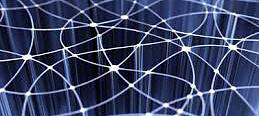Speakers
Mr
Albert Dove
(University of Witwatersrand)
Dr
Ivan Hofsajer
(University of Witwatersrand)
Description
The fields of radio astronomy and high energy partial physics are characterized by very large amounts of data. This can be seen in the CERN ATLAS experiment and the SKA radio telescope which need to gather and process very large data sets. The nature of these data sets is that they:
A. Are big
B. Stream, in the sense that they continually produce data over long periods of time.
C. The data source is localized
D. Some form of preprocessing is performed at the source to reduce the data in need of processing.
E. The detail data analysis is not required in real time.
This type of experiment with a large throughput has been rigorously analyzed from both the front end high throughout electronics to the data aggregating and processing or storage. It is proposed here that this type of experimental system may be used to inform the design of a very different application, but with some common elements.
As energy is fast becoming a scarce resource, it is important to be able to carefully control its use. This is required both for efficiency as well as for maximizing the utilization of existing infrastructure. All forms of energy are under pressure, but it is electrical energy in particular that will be the focus of this investigation.
Currently the electrical energy generation and distribution grid is characterized by a control system that has relatively few measurement points and a centralized control center. This has work very well in the past, but as the grid is coming under increasing pressure, it is important to be able to achieve better control, which in turn needs better and finer measurement. This is especially important within the South African context, where nationally the electricity supply grid runs with almost no reserve margin.
Many initiatives abound concerning the so-called smart grid. With the term meaning different things to different people. However it is generally considered to have a distributed network of sensors. With the additional data, "smarter" control and decisions can be made.
It is proposed that every single consumer of electrical energy in South Africa be metered on a sub 50Hz cycle time base. This could produce a complete picture of energy consumption in a real time manner, producing a data stream of about 10G-bytes per second. This is a substantial amount of data and possibly the techniques developed in the data intensive science experiments could be successfully used here. The energy metering project could be characterized as:
A. Big
B. Streams continuously
C. Data source is distributed.
D. Preprocessing is required to alleviate the amount of data.
E. Some analysis is required in real time, but not all.
Primary authors
Mr
Albert Dove
(University of Witwatersrand)
Dr
Ivan Hofsajer
(University of Witwatersrand)

